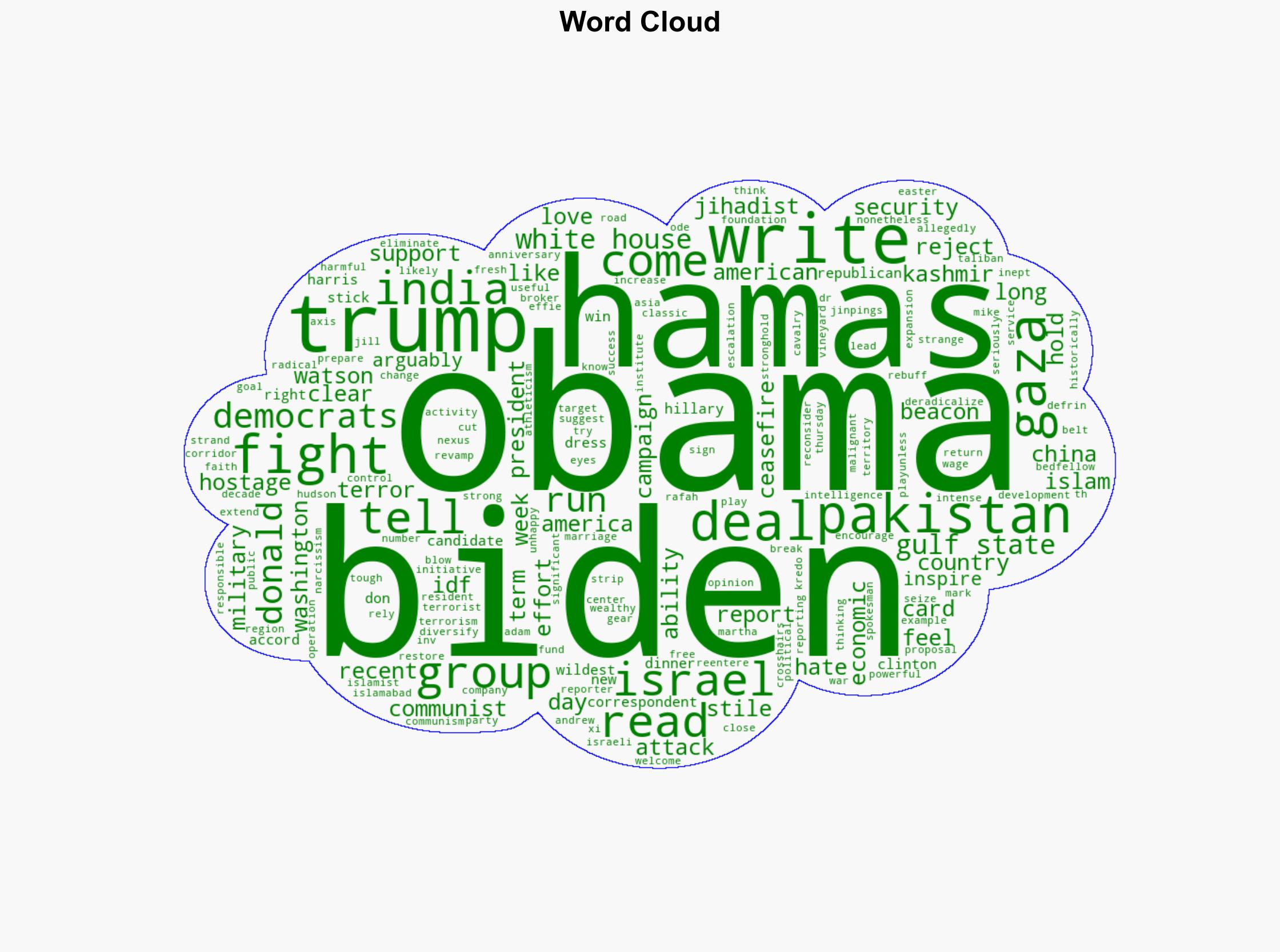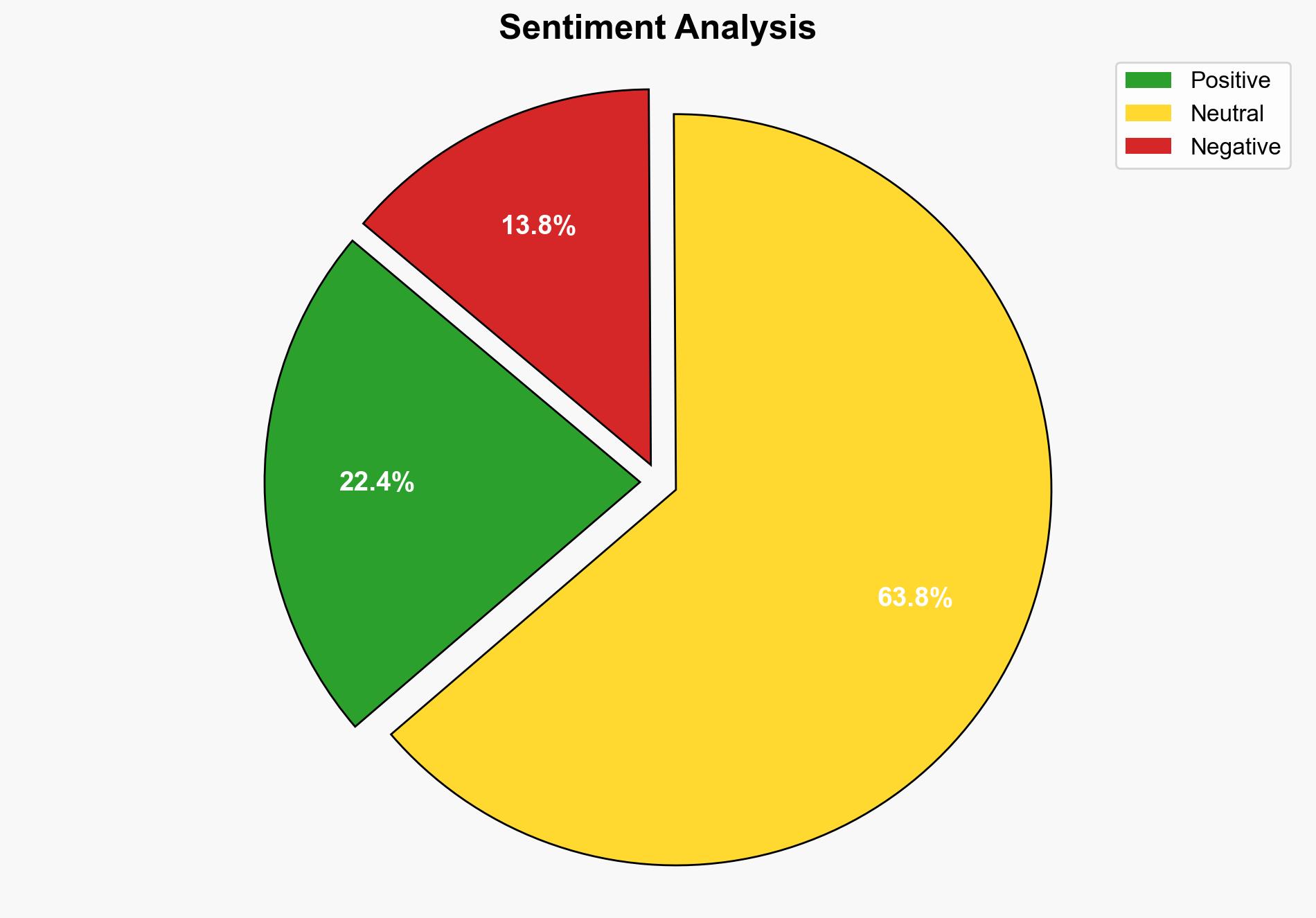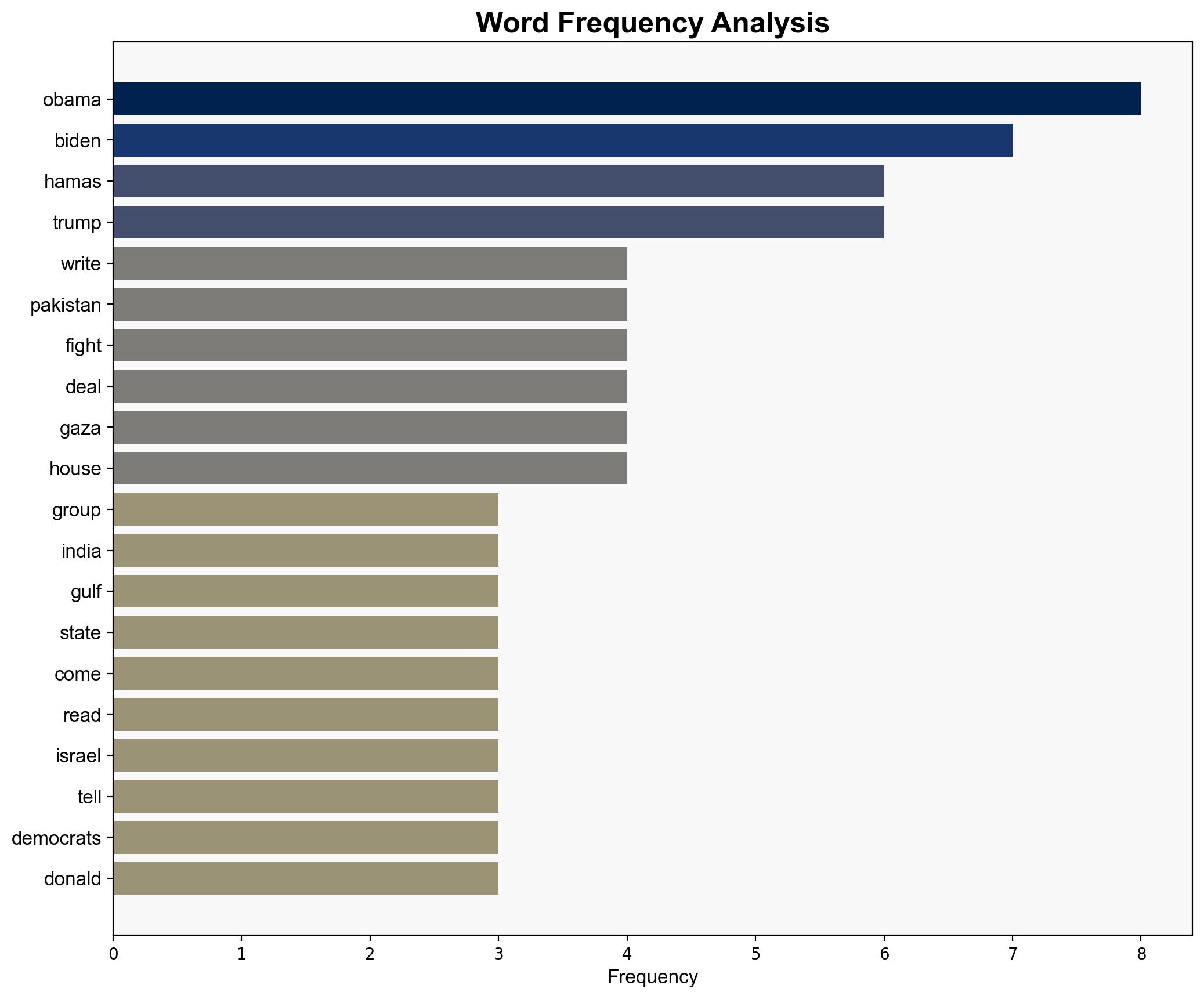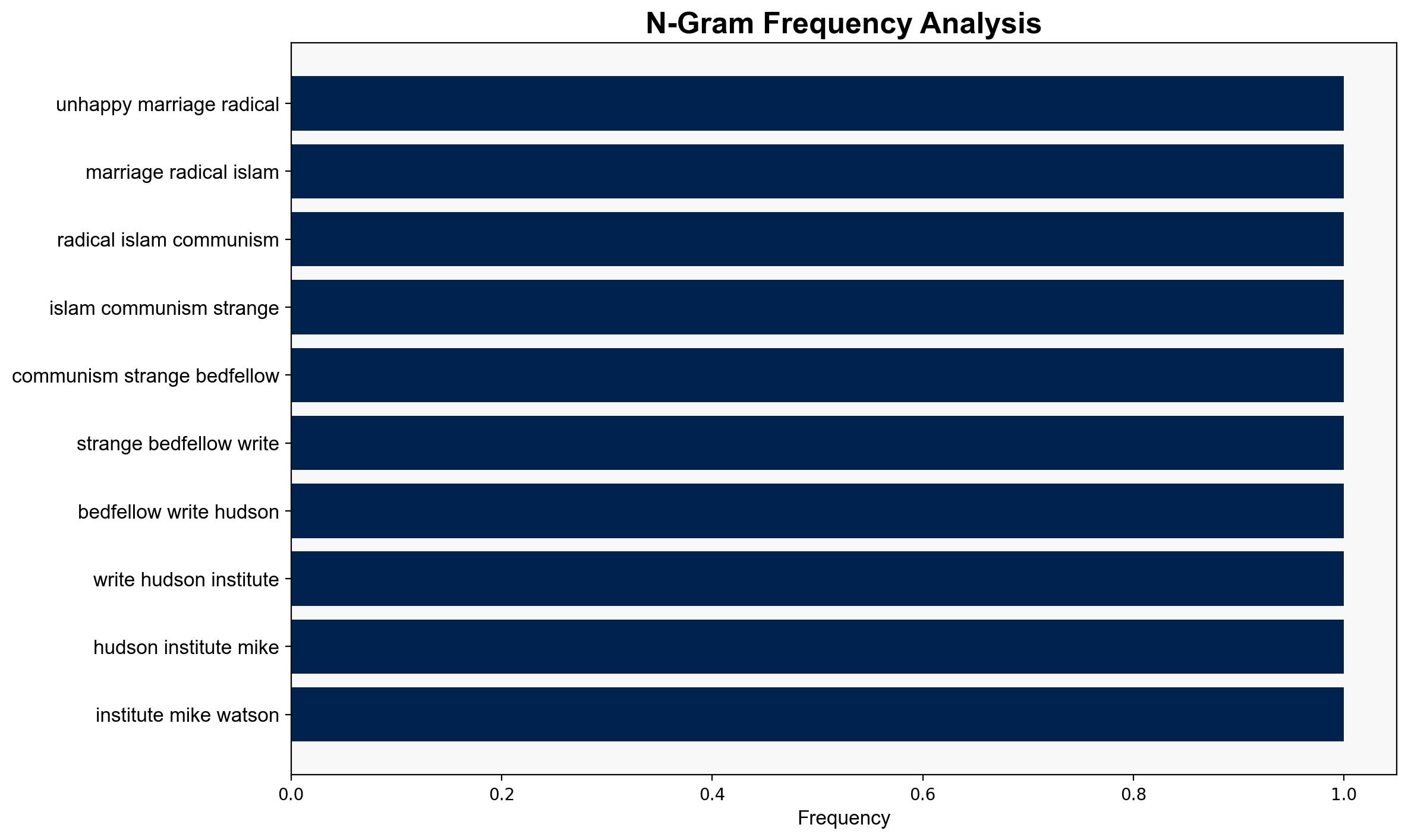The Communist-Islamist Axis Rears Its Head in South Asia Plus Israel Plots Military Expansion in Gaza – Washington Free Beacon
Published on: 2025-04-26
Intelligence Report: The Communist-Islamist Axis Rears Its Head in South Asia Plus Israel Plots Military Expansion in Gaza – Washington Free Beacon
1. BLUF (Bottom Line Up Front)
The report identifies a growing nexus between radical Islamist and communist entities in South Asia, with Pakistan and China as key players. Concurrently, Israel is preparing for a significant military escalation in Gaza following failed ceasefire negotiations with Hamas. Strategic recommendations include bolstering regional alliances and enhancing counter-terrorism measures.
2. Detailed Analysis
The following structured analytic techniques have been applied to ensure methodological consistency:
General Analysis
The alliance between radical Islamists and communists is exemplified by Pakistan’s strategic use of jihadist groups against India, supported by China’s economic initiatives like the China-Pakistan Economic Corridor. This partnership poses a direct threat to regional stability and could potentially draw in broader international involvement. In Gaza, Israel’s military strategy aims to dismantle Hamas’s operational capabilities, with a focus on regaining control and ensuring long-term security.
3. Implications and Strategic Risks
The strengthening of the Communist-Islamist axis could destabilize South Asia, increasing the risk of military confrontations and economic disruptions. In the Middle East, Israel’s military actions in Gaza may escalate tensions, potentially drawing in regional actors and impacting global energy markets. The dual threats highlight vulnerabilities in existing security frameworks and the need for robust international cooperation.
4. Recommendations and Outlook
- Enhance intelligence-sharing and counter-terrorism collaboration with regional partners to mitigate the influence of the Communist-Islamist nexus.
- Support diplomatic efforts to stabilize South Asia and encourage economic diversification to reduce dependency on Chinese investments.
- In the Middle East, engage in proactive diplomacy to prevent further escalation in Gaza and support humanitarian efforts to alleviate civilian suffering.
- Scenario-based projections:
- Best Case: Successful diplomatic interventions lead to de-escalation in both regions.
- Worst Case: Escalation results in broader regional conflicts and economic instability.
- Most Likely: Continued tensions with intermittent conflict and diplomatic engagements.
5. Key Individuals and Entities
– Mike Watson
– Adam Kredo
– Effie Defrin
– Andrew Stile
– Chris Whipple
– Jonathan Allen
– Amie Parnes
– Susan Collins
– Janet Mills
6. Thematic Tags
(‘national security threats, cybersecurity, counter-terrorism, regional focus’, ‘cybersecurity’, ‘counter-terrorism’, ‘regional focus’)




